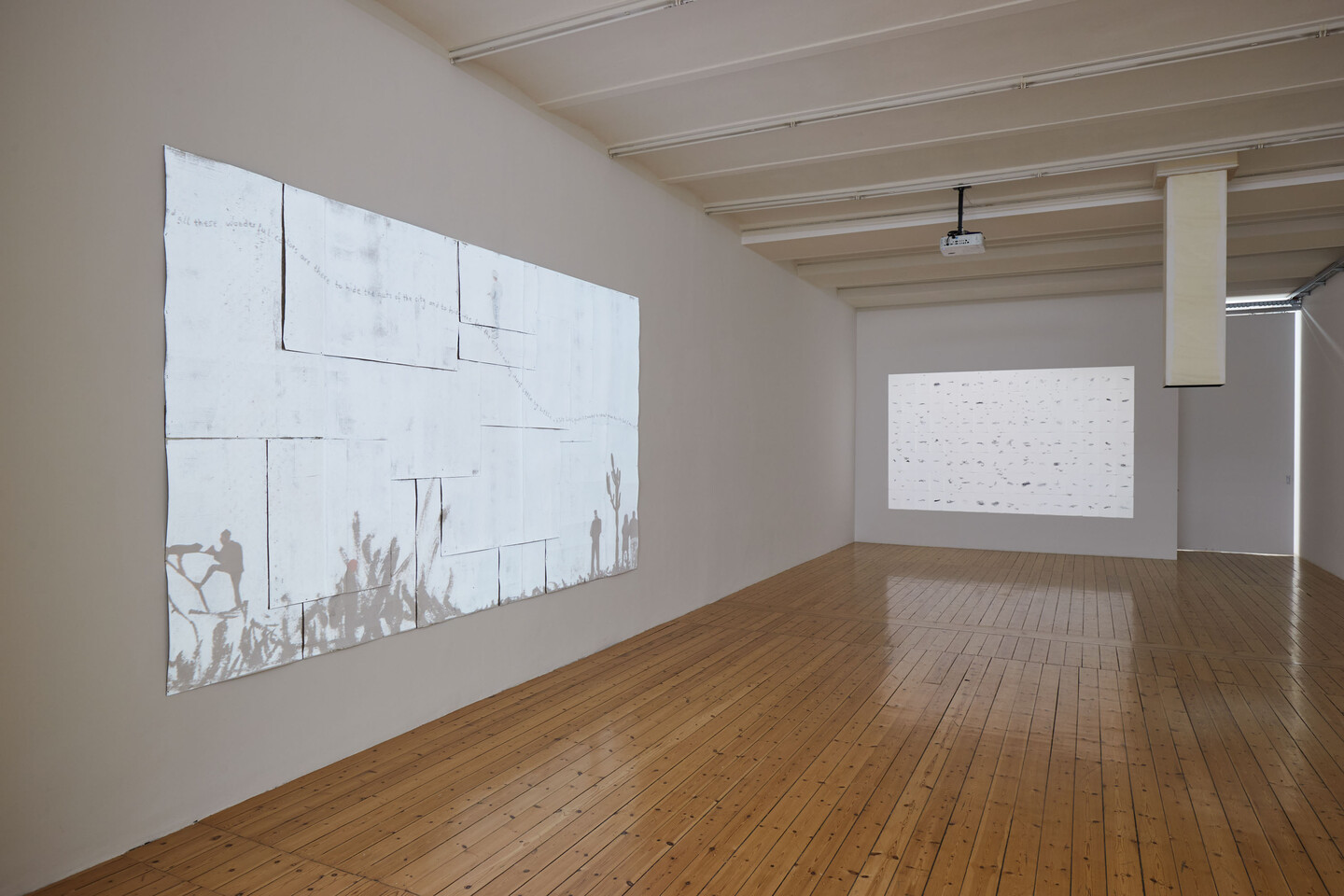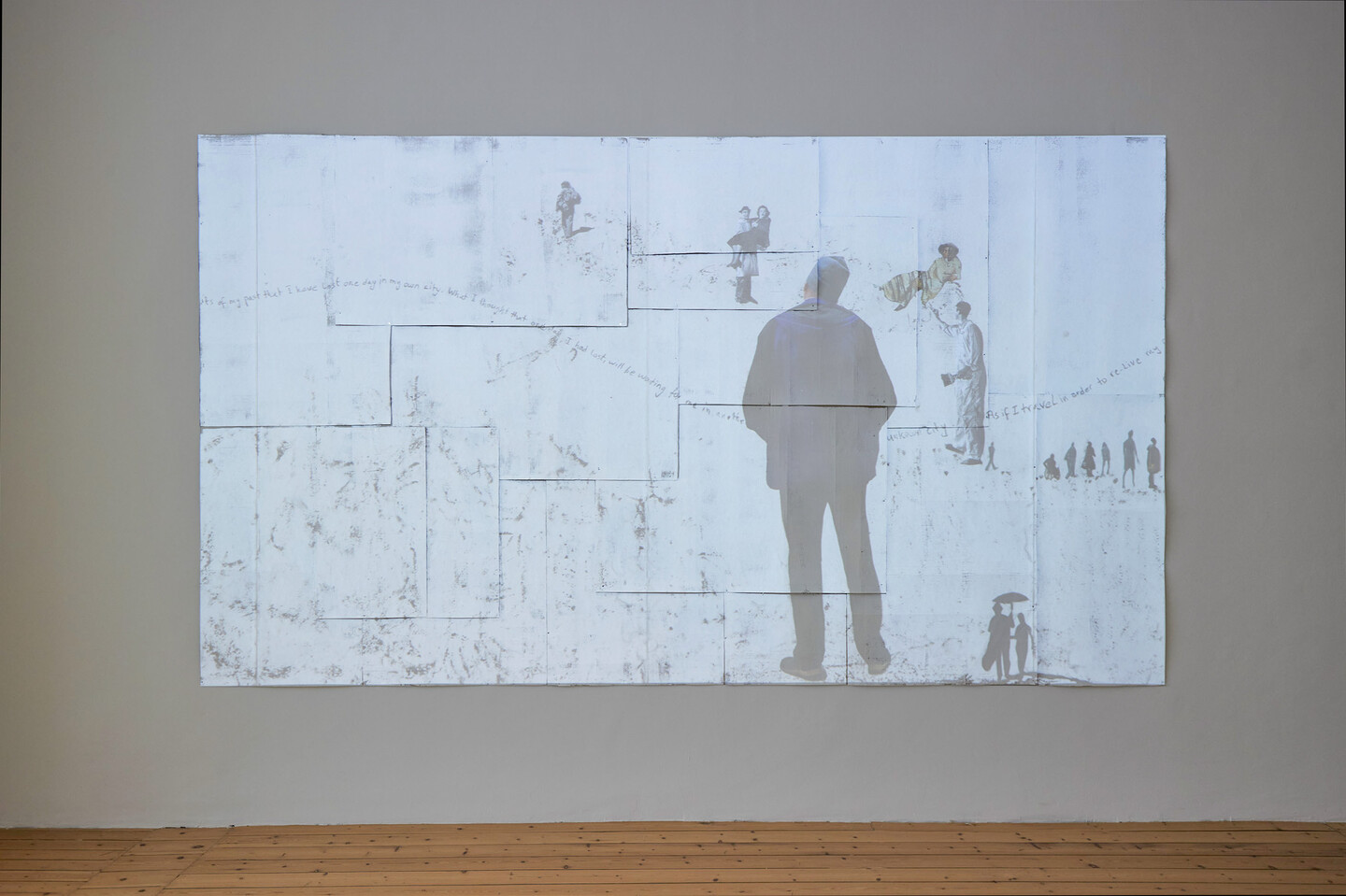Rabih Mroué’s solo exhibition in our Hamburg space proposes an overview of the artist’s multifaceted practice, with recent and new works that center around his ongoing inquiry into the influence of war images, and how they are used to shape perceptions.
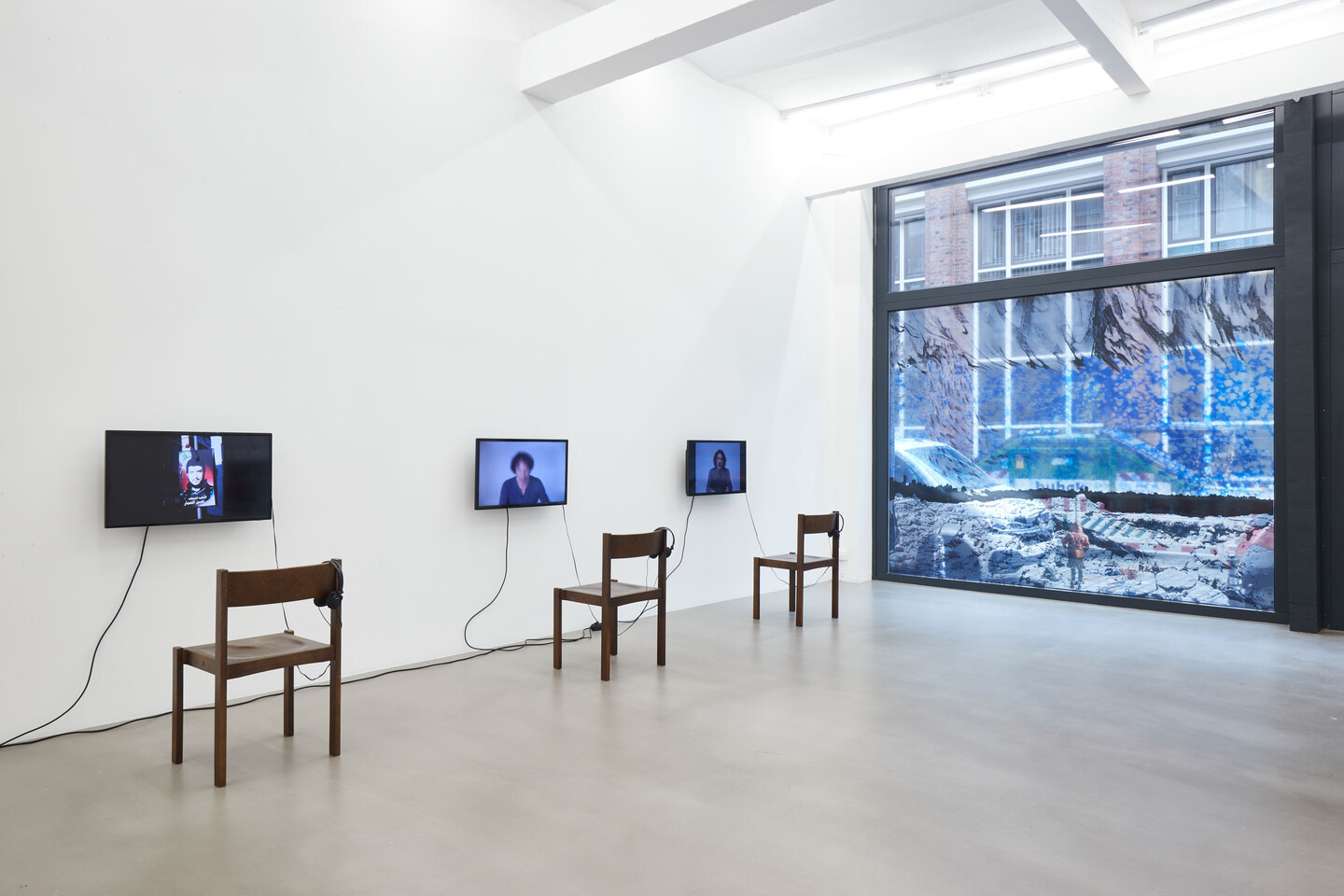
At first glance, visitors are engulfed in a multitude of moving images, that seem to bring into the static gallery space motion from staged dance and theater. A series of screens present Mroué’s “non-academic lectures”, which are performed by the artist himself, using a combination of visual material, historical documentation, and fictional stories. The monologues use strategies of fragmentation, repetition, even manipulation to highlight missing links and gaps in certain narratives.
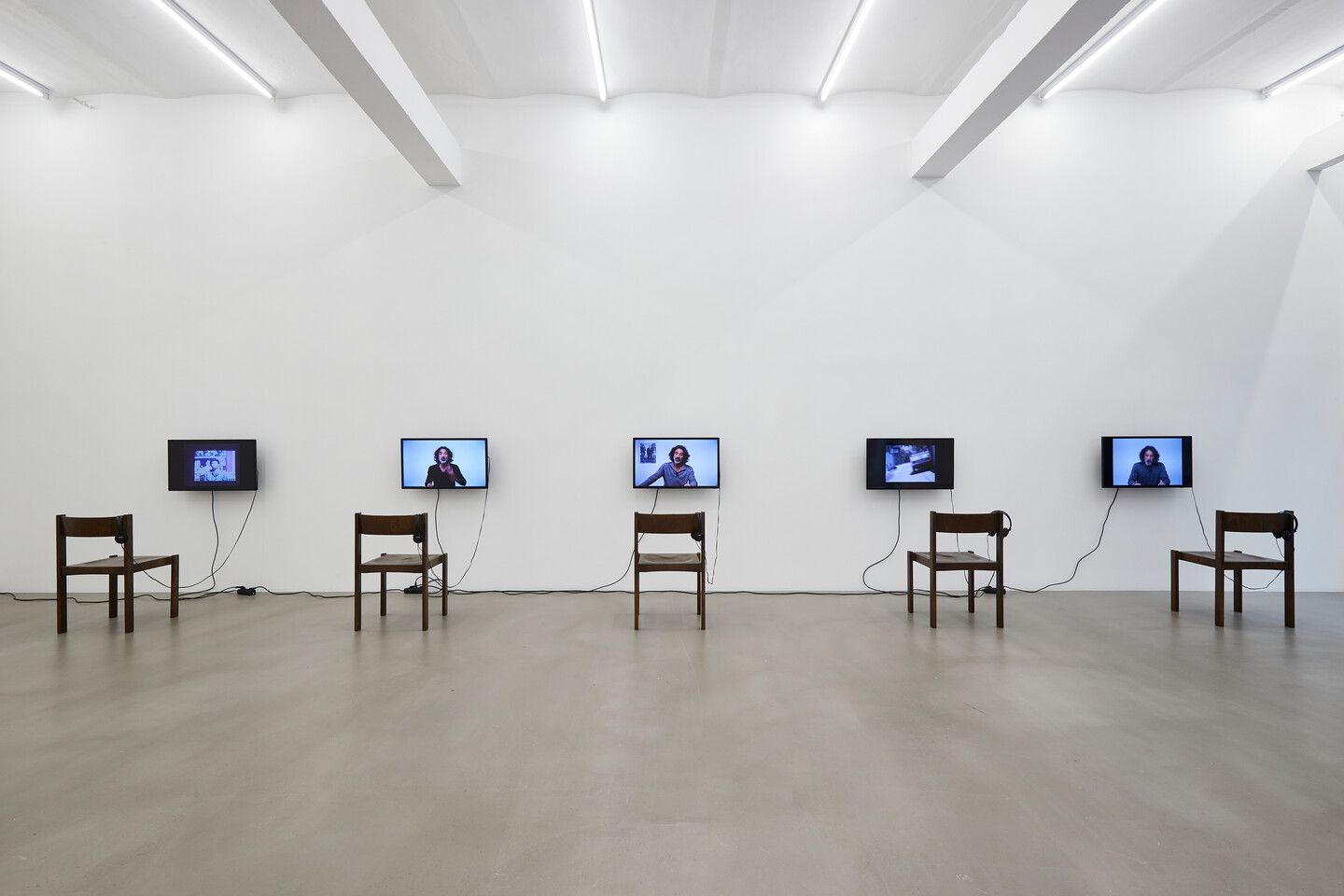
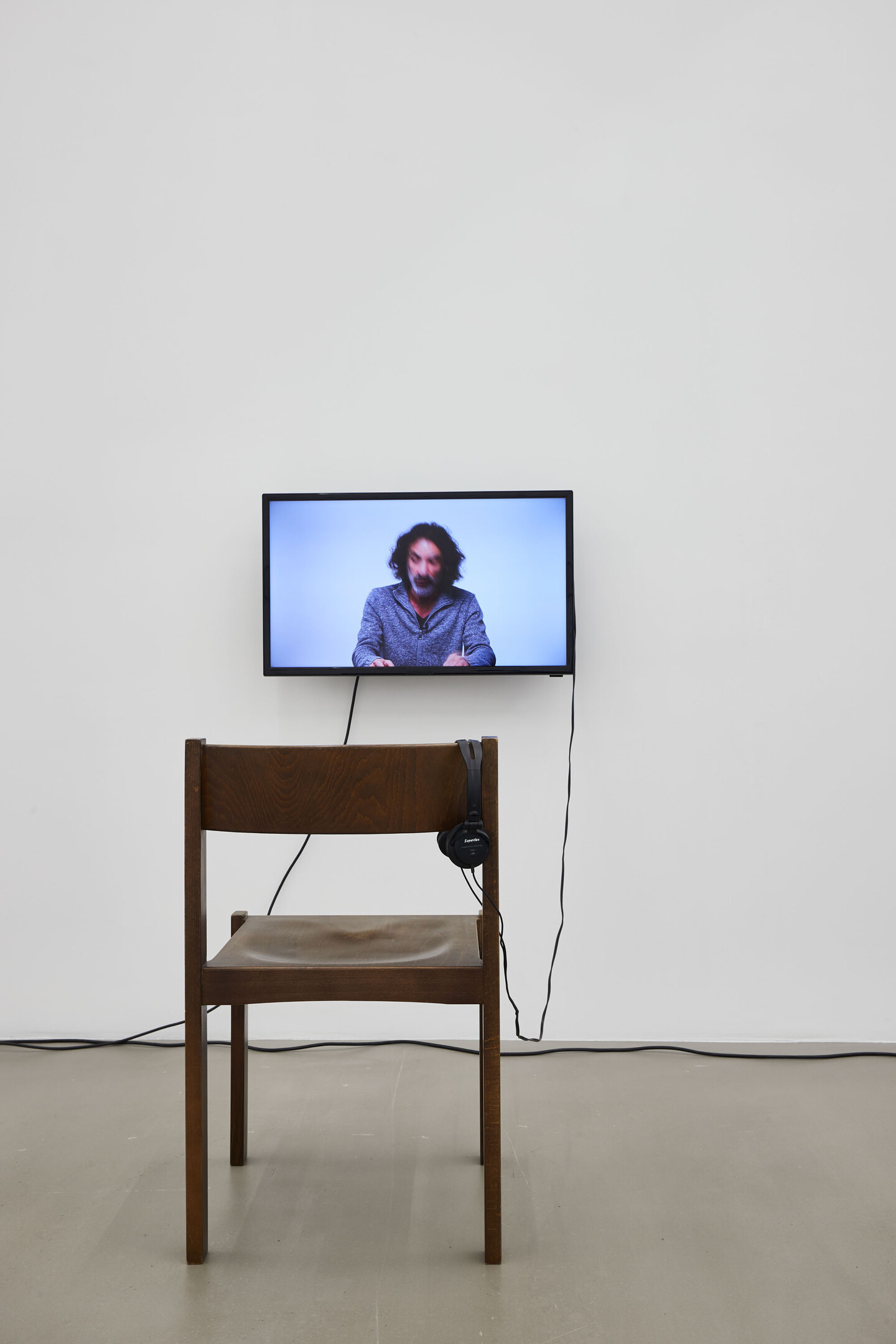
Similarly, in the series of cut-outs and collages entitled Reqa, Mroué borrows accent lighting stratagems form theatre, blacking-out images from newspapers clippings collected over several years, to put the focus on their captions. While the still visible words form an aesthetic of censorship, they first and foremost give back interpretation and imagination power to the viewer. Paradoxically, they also enforce a dawning realization that the – unseen – depicted events are unescapable realities.
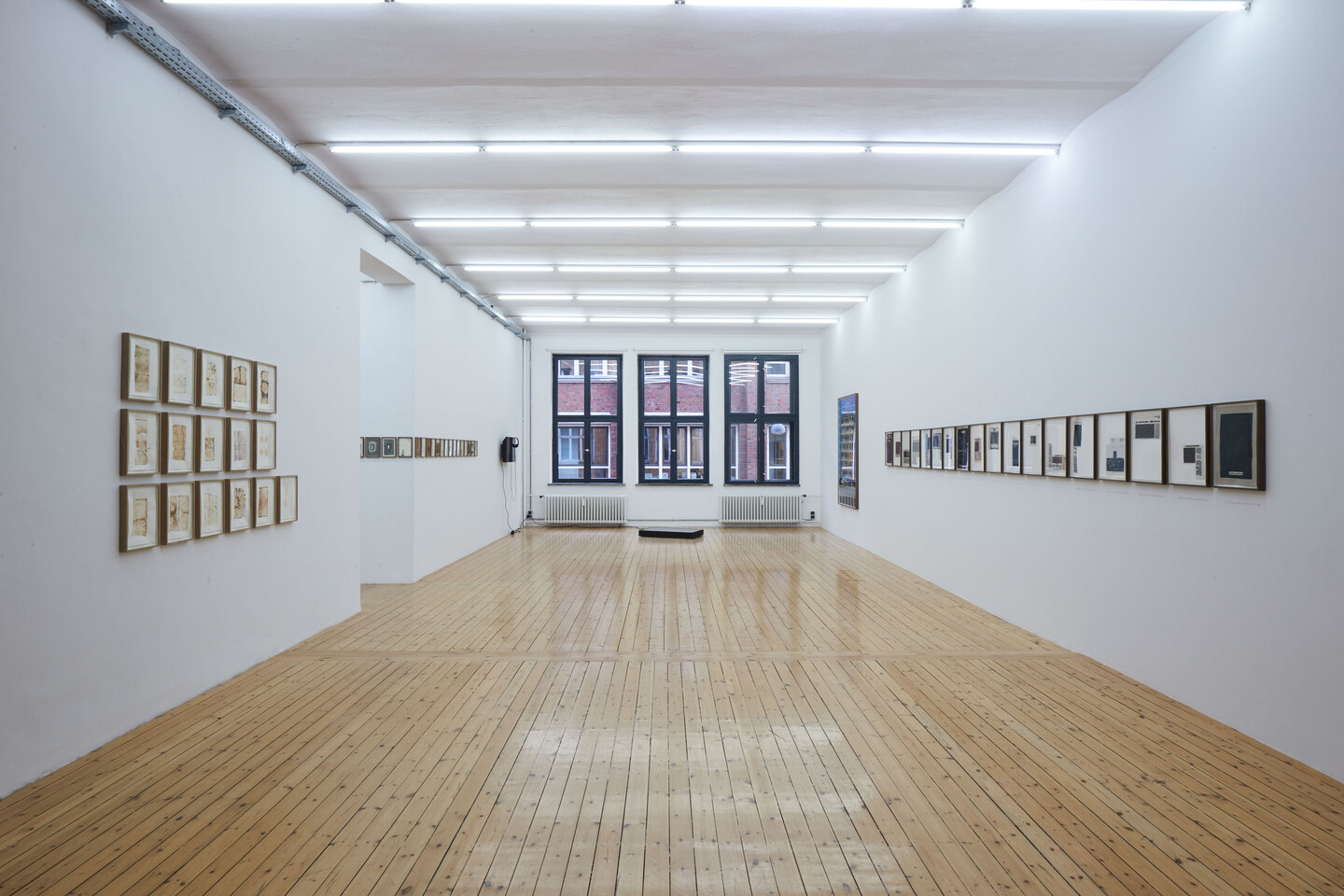
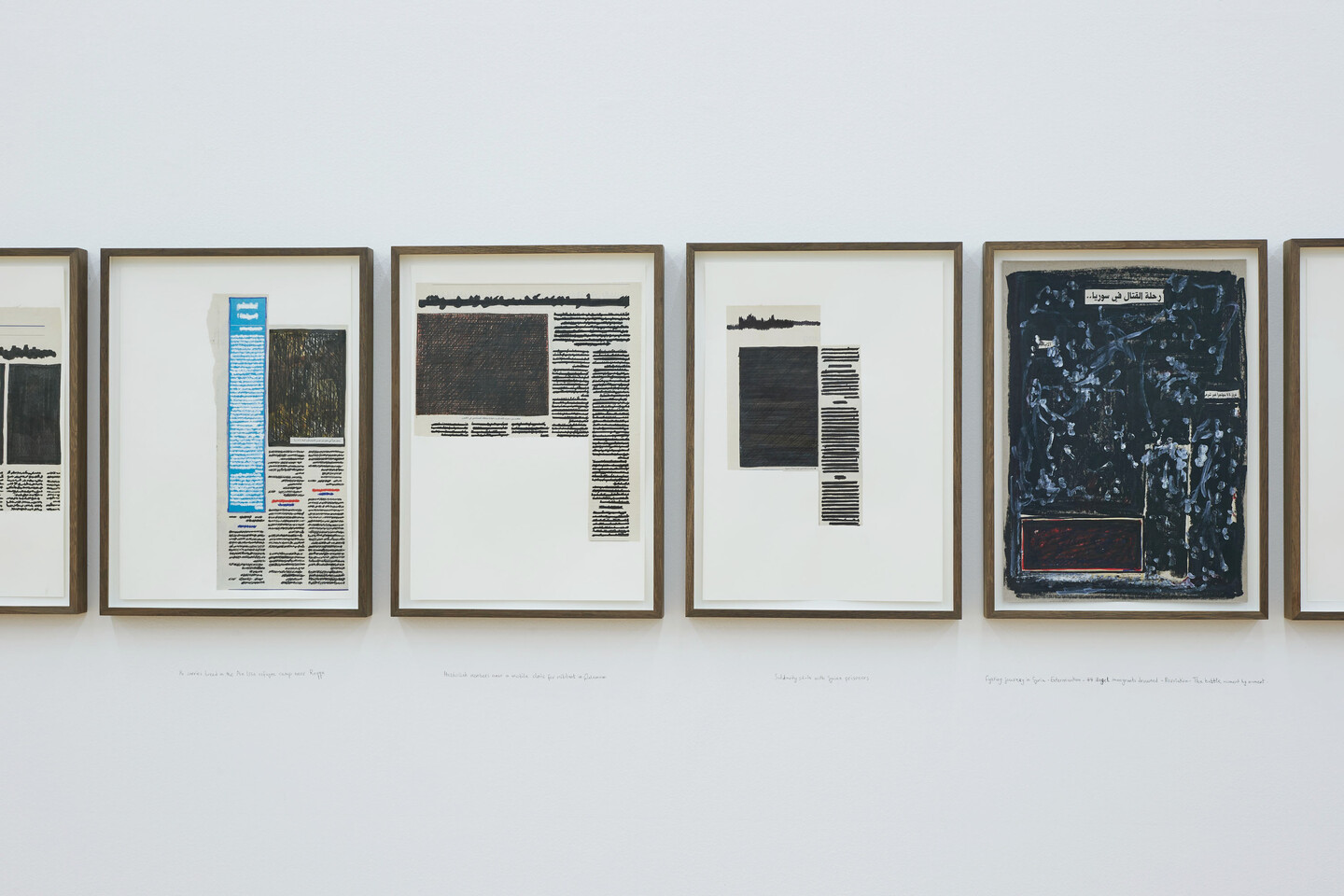
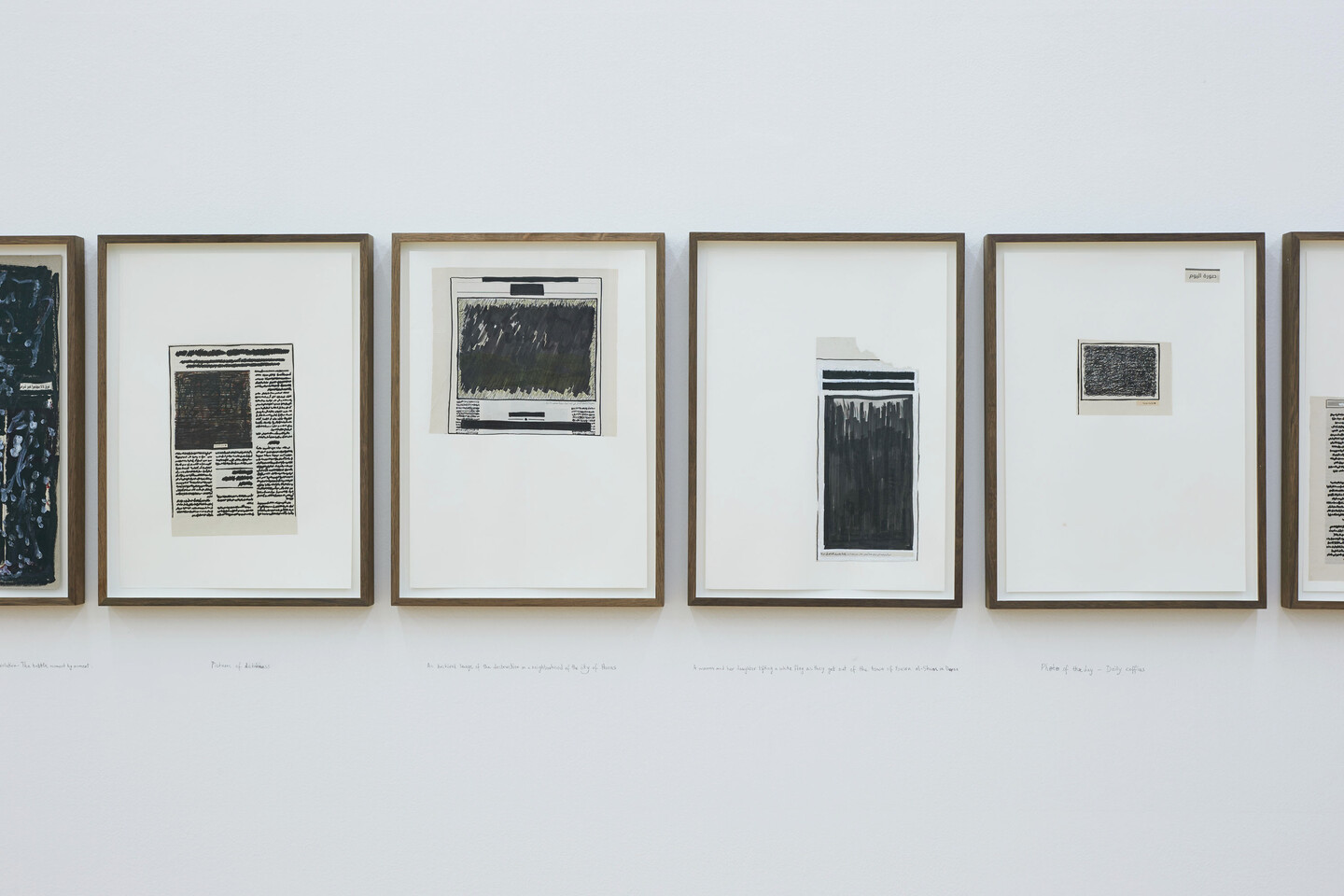
Consistently returning to the effect of the relentless stream of violent images channeled by the media, Mroué often starts with drawings and collages that eventually become animated reflections.
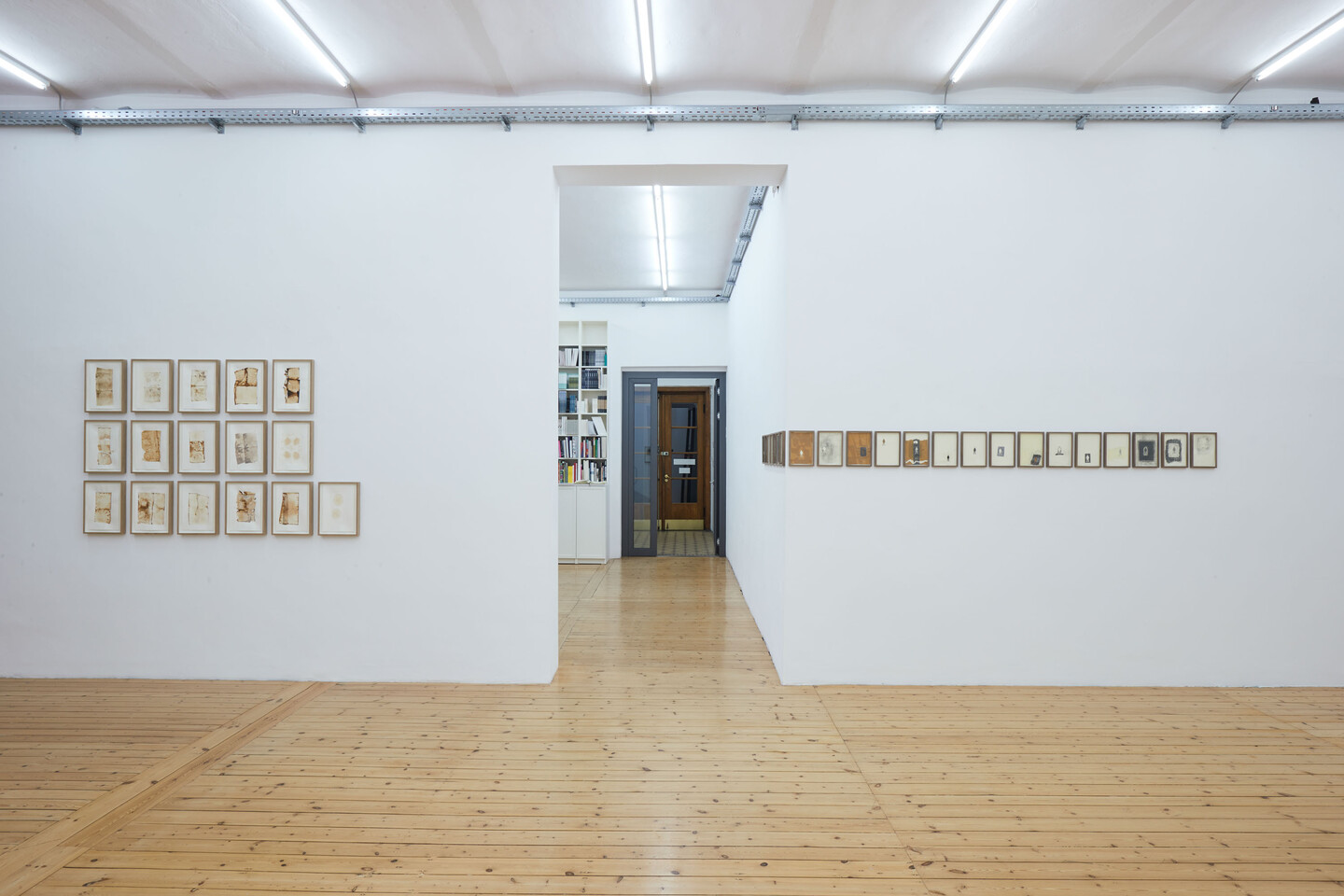
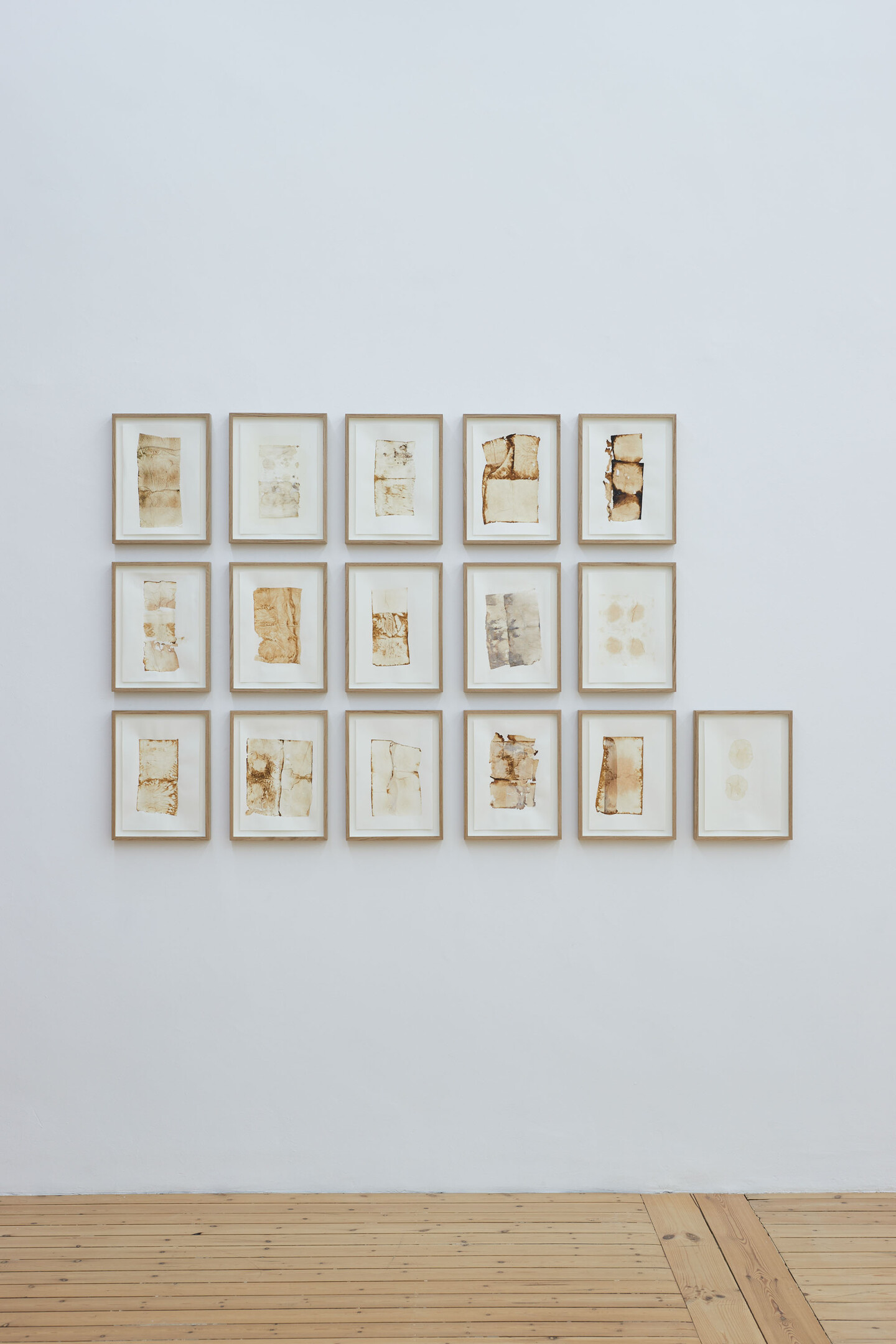
These delicate works on paper act as a script, developed from the artist’s personal archive and memory, animated into the story of untold or overlooked moments.
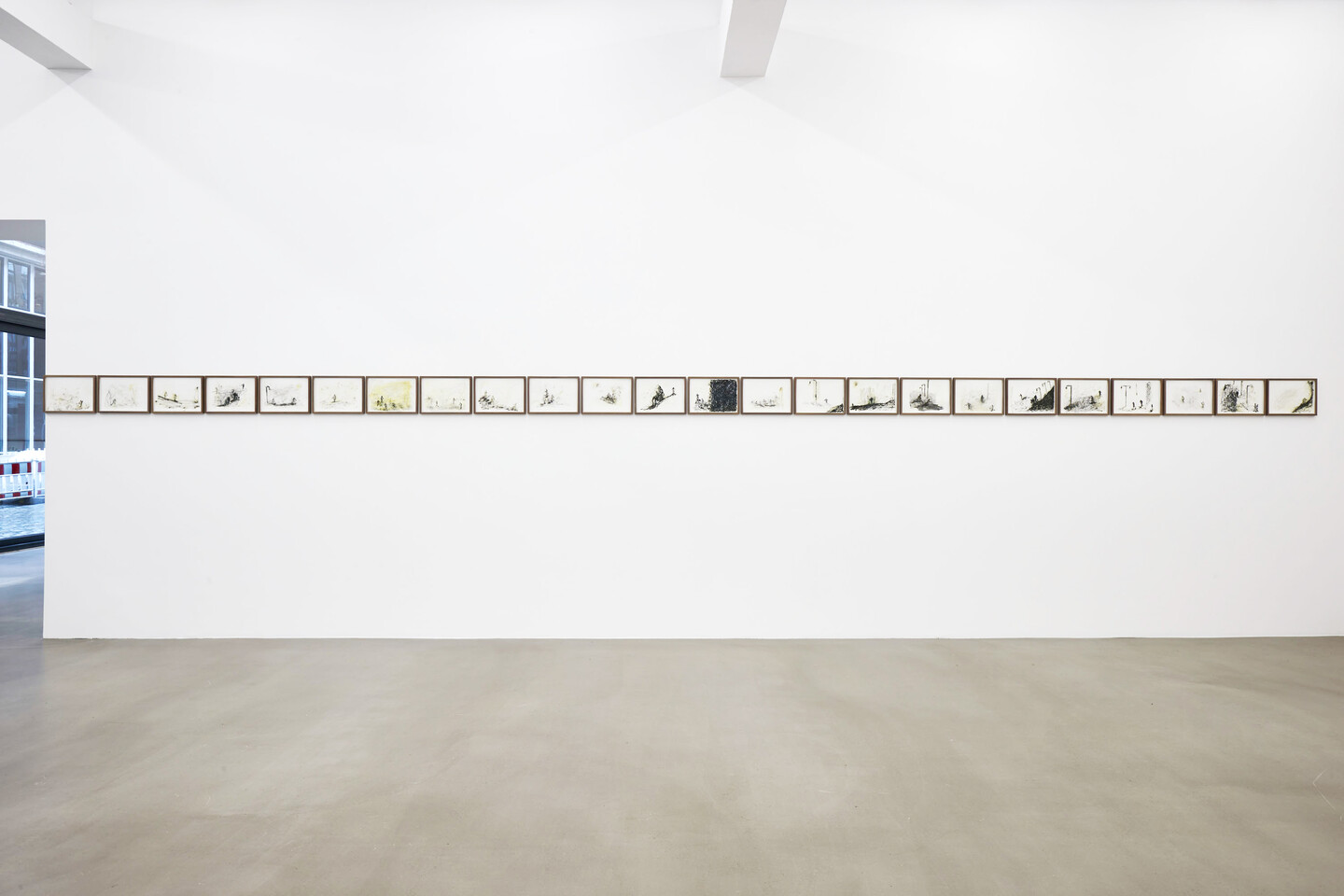
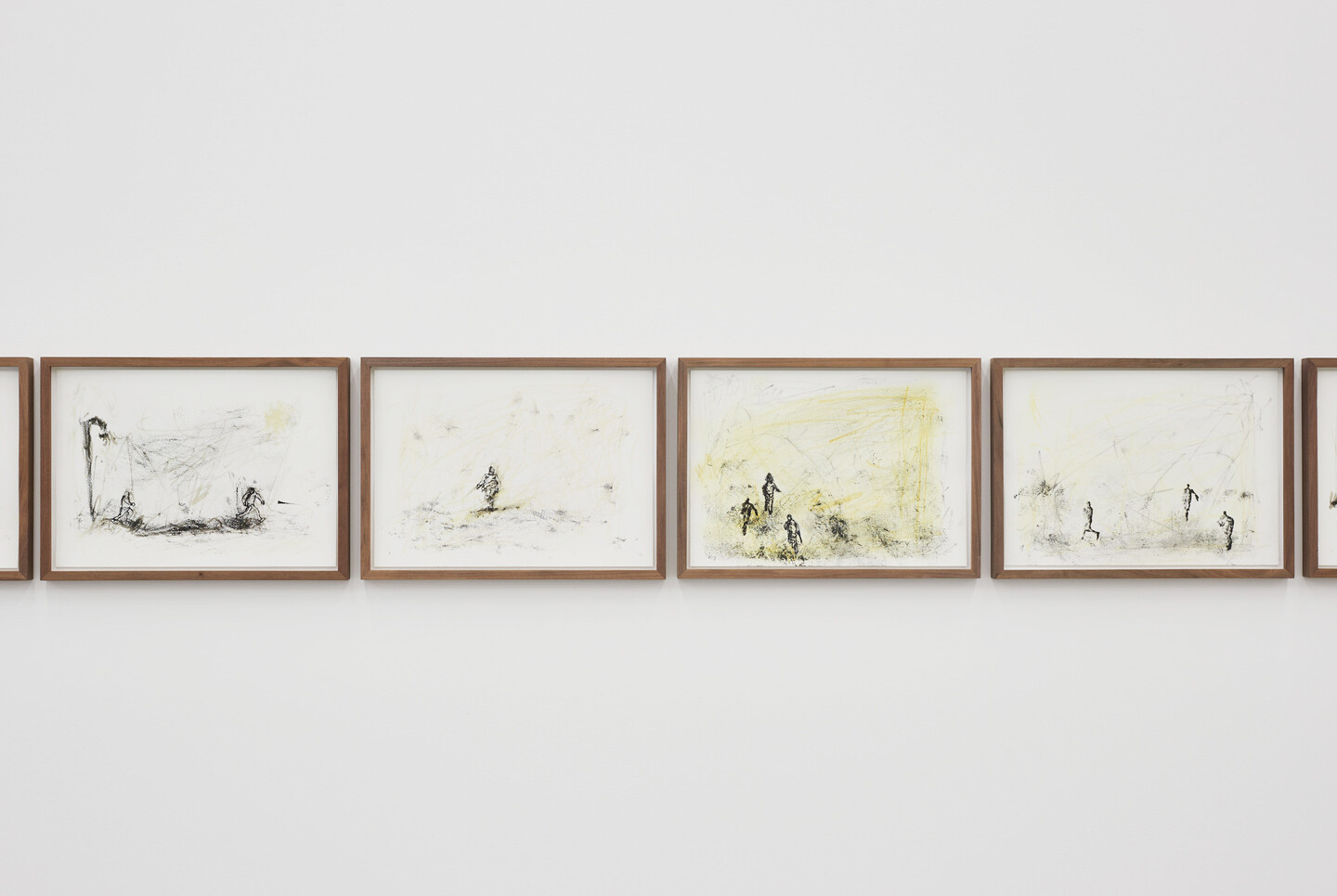
In other instances, the artist plays with images, overlapping silhouettes through a projection on prints, or drawing crayoned bodily forms. These minimal outlines hint to long-gone bodies, whose shadows remain with the living. Death is omnipresent, as in Gruyere, 2023, composed as a mosaic to form the image of an iconic building of Beirut, in which Mroué tells us an assassination took place in 1987 on one of the second-floor apartments.
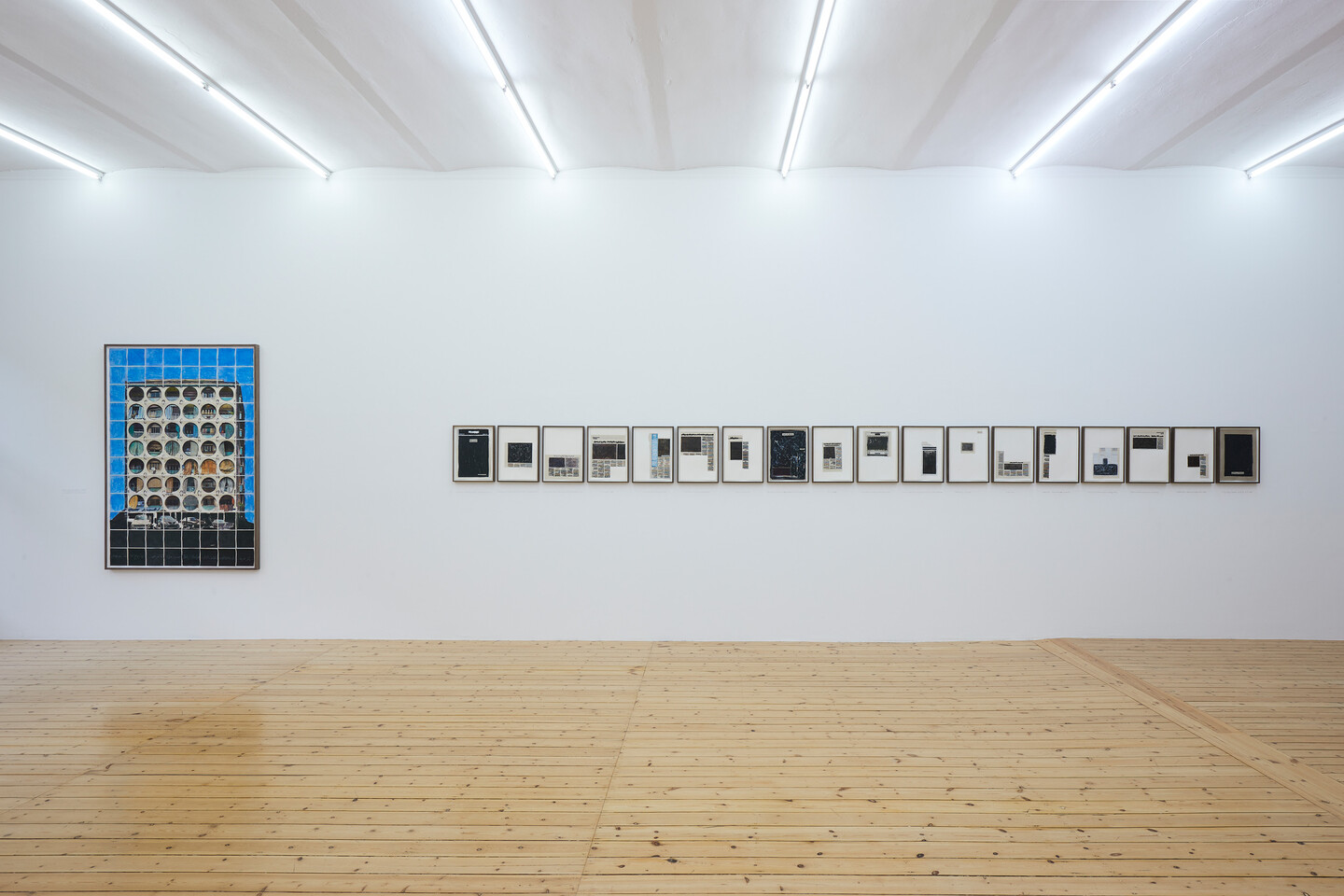
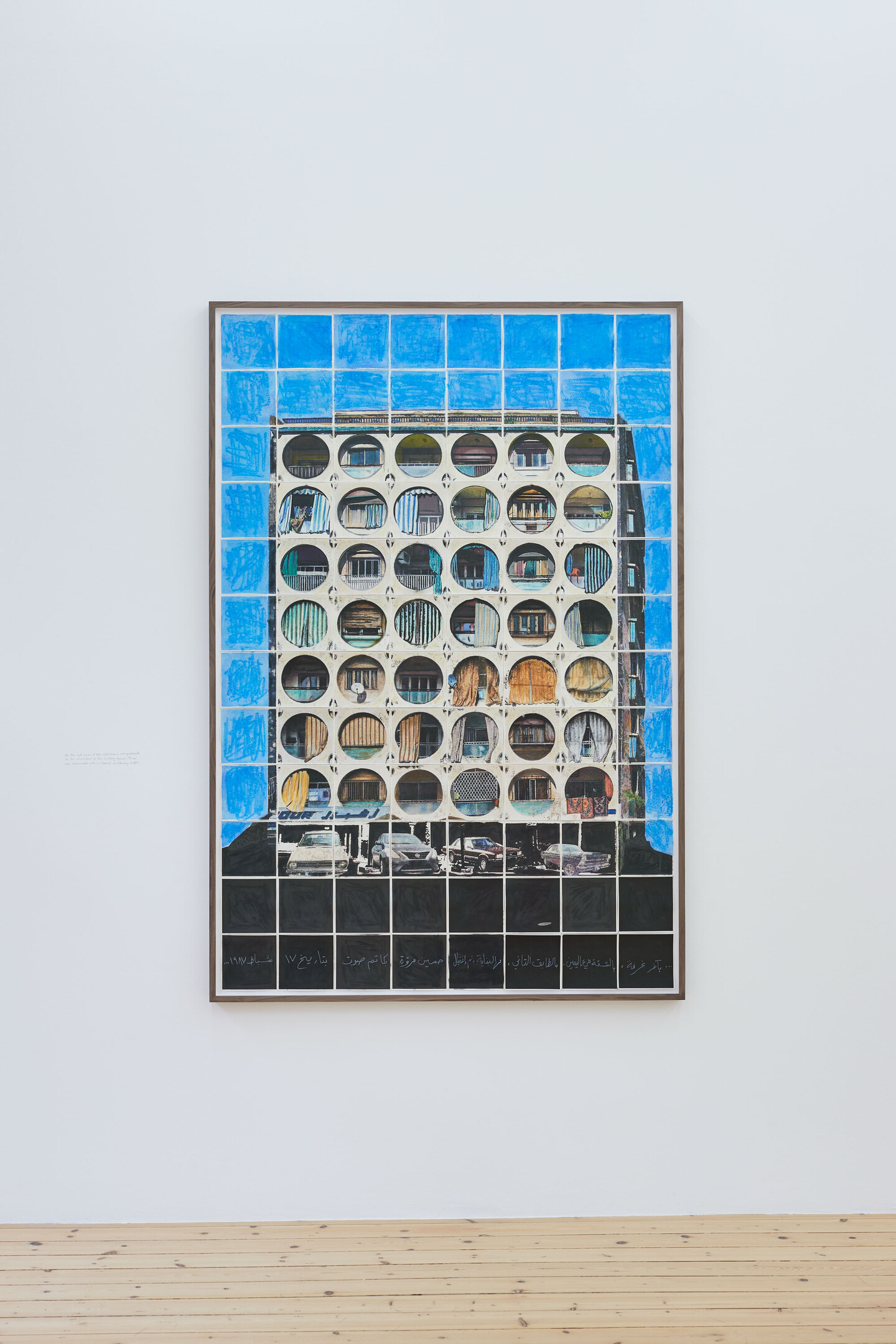
Rabih Mroué questions the power of images, their instrumentalization, and their relationship to real or invented facts, to truth or deception, and their impossible objectivity.
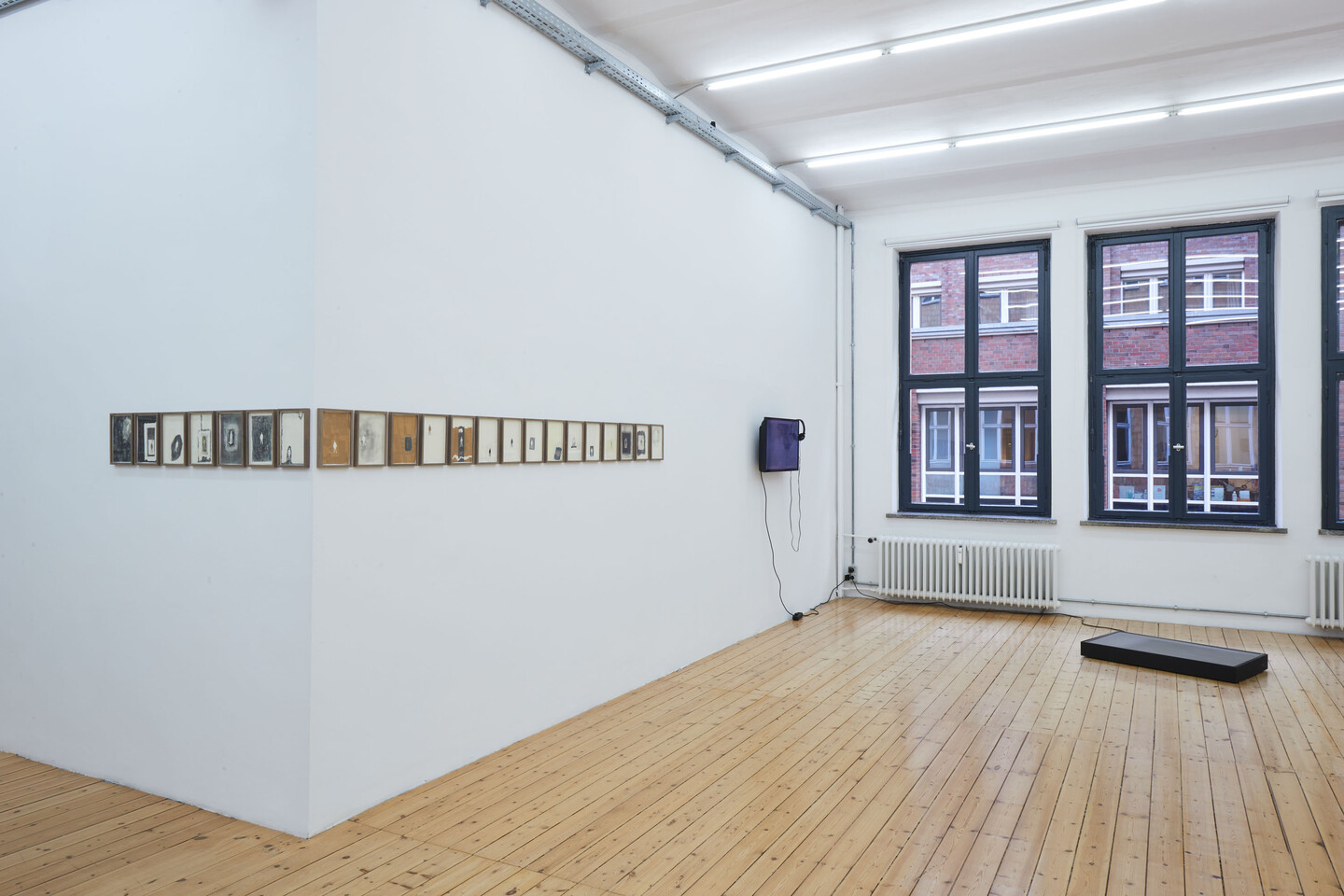
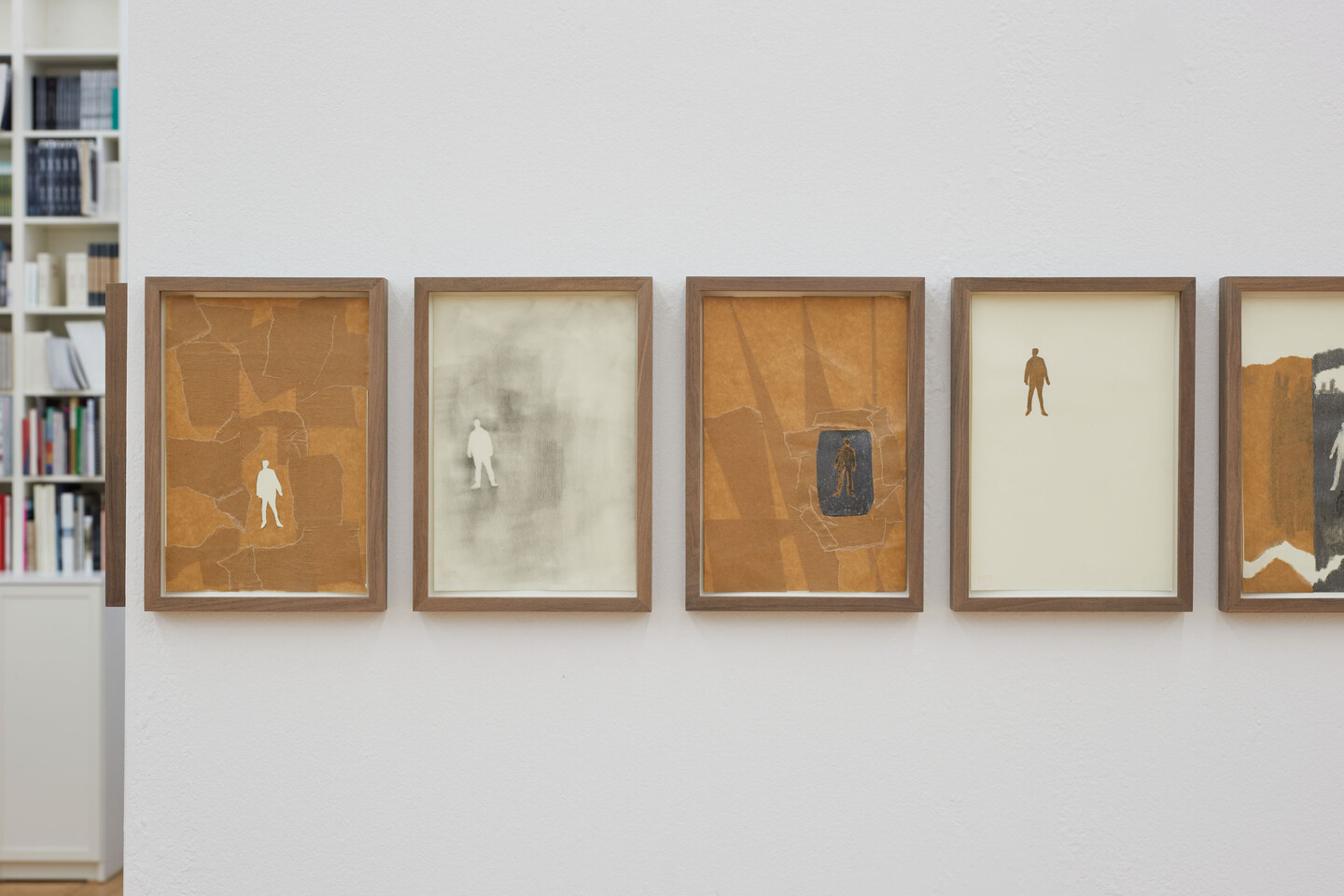

Through the lens of his own personal story, he scrutinizes contemporary politics and history of Lebanon and the Middle East. And what seems to be a fatalistic, almost defeatist, approach, turns out to be a deep wisdom of acceptance.
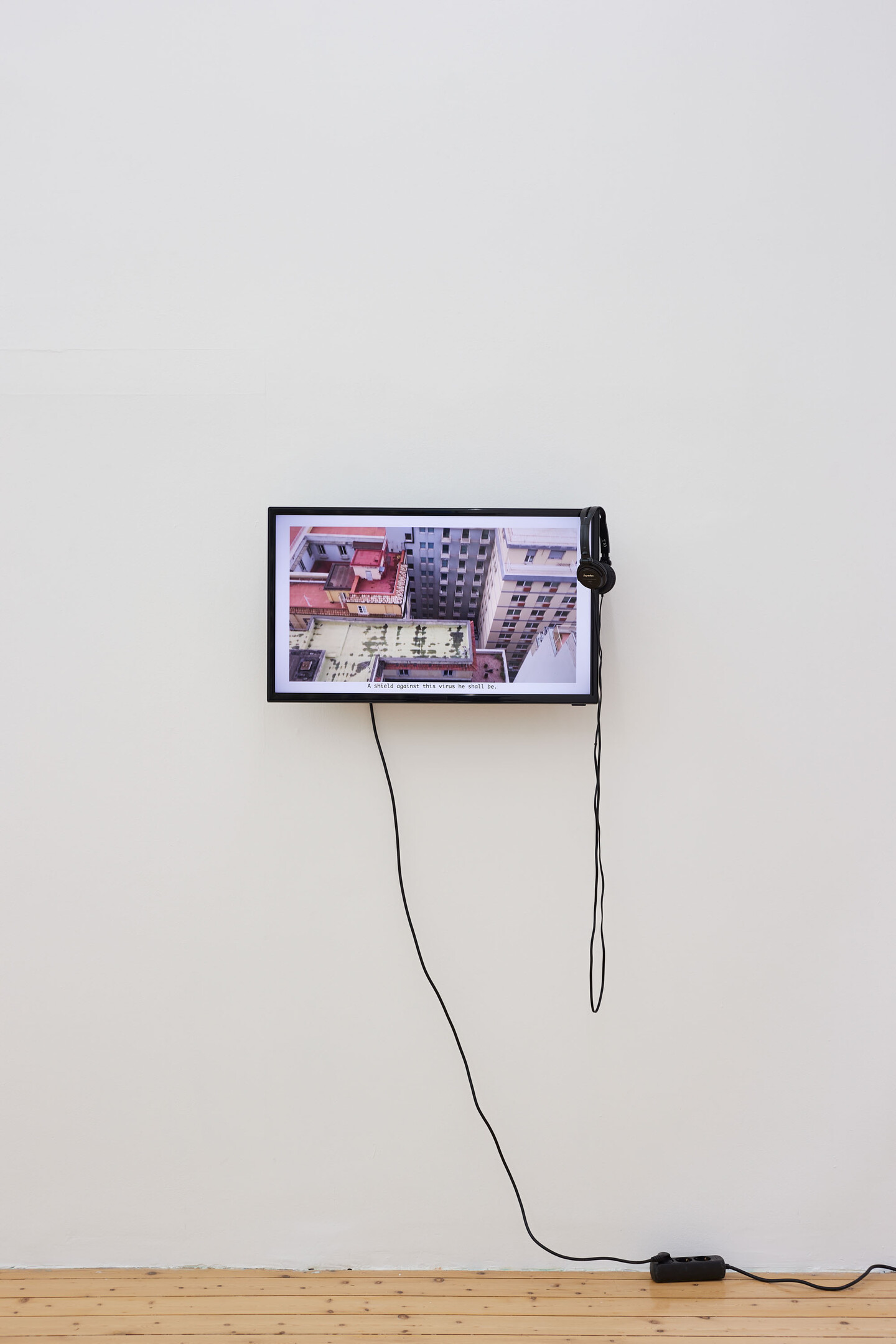
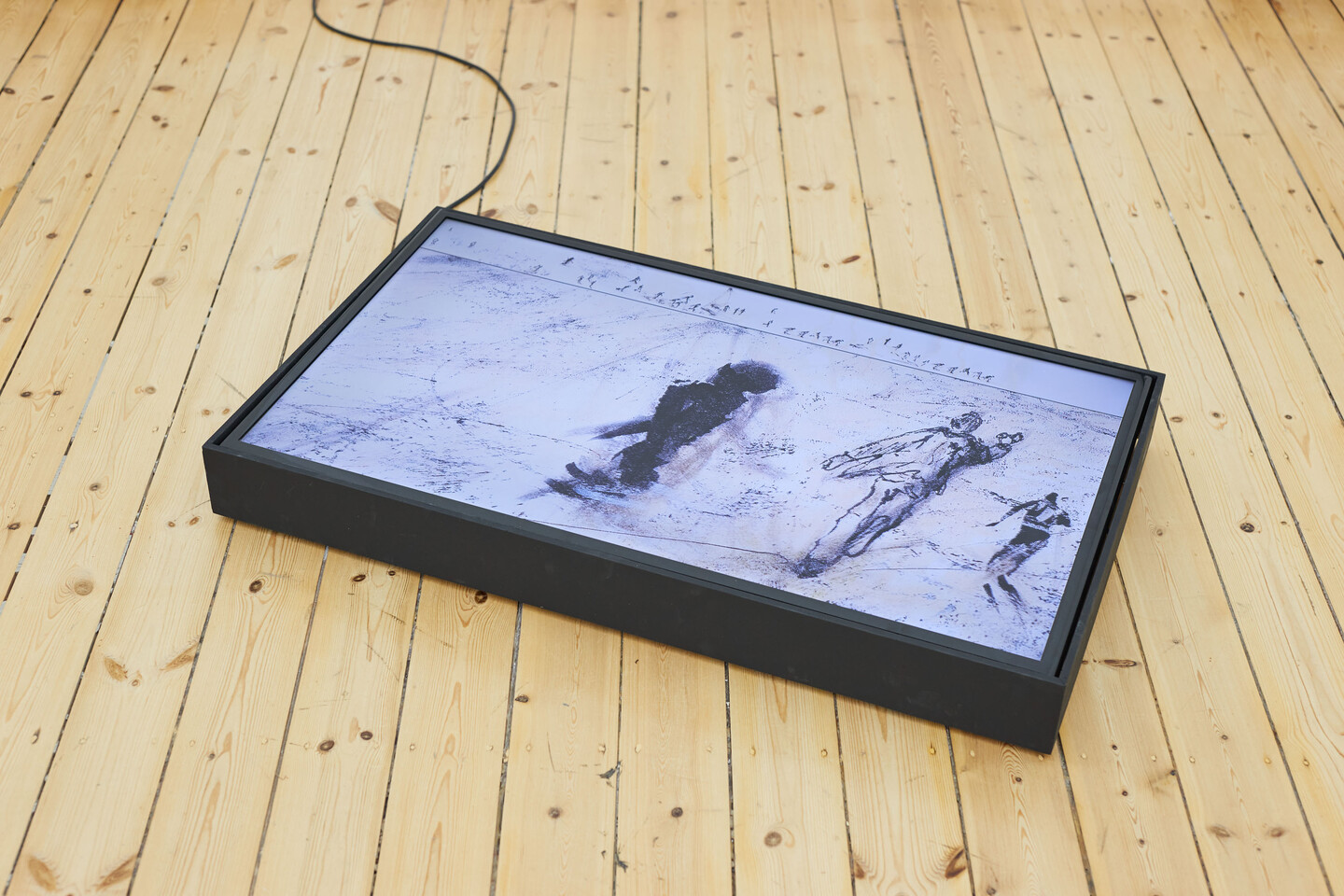
His attempt at finding out what the future holds in coffee-stained collages ultimately sparks a glimmer of hope.
